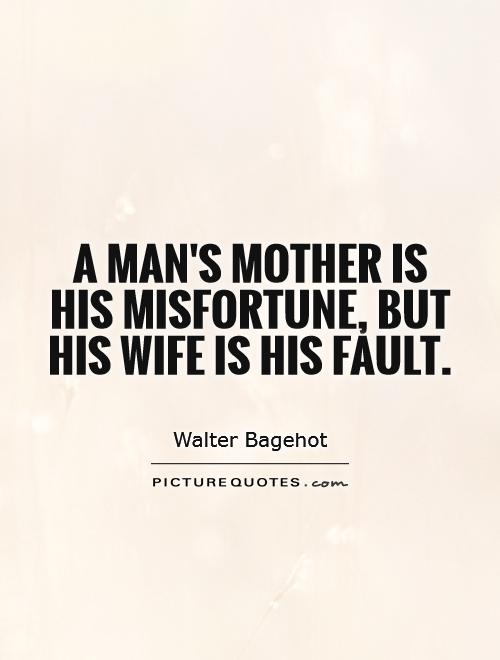A man's mother is his misfortune, but his wife is his fault

A man's mother is his misfortune, but his wife is his fault
Walter Bagehot, a renowned British economist and journalist, once famously said, "A man's mother is his misfortune, but his wife is his fault." This statement, though seemingly controversial, holds a deep truth about the dynamics of familial relationships and the responsibilities that come with them.When Bagehot speaks of a man's mother being his misfortune, he is highlighting the idea that a person's upbringing and early experiences with their mother can shape their future in both positive and negative ways. A mother plays a crucial role in a child's development, providing love, support, and guidance. However, if a mother is overbearing, neglectful, or abusive, it can have lasting effects on a person's mental and emotional well-being. In this sense, a man's mother can be seen as his misfortune if he has had a difficult or tumultuous relationship with her.
On the other hand, Bagehot's assertion that a man's wife is his fault suggests that a person's choice of partner and the quality of their relationship is ultimately their responsibility. Unlike a mother, who is often a constant presence in a person's life from birth, a wife is someone that a man chooses to be with and build a life with. The success or failure of a marriage is dependent on the actions and decisions of both partners, making it a shared responsibility.












 Friendship Quotes
Friendship Quotes Love Quotes
Love Quotes Life Quotes
Life Quotes Funny Quotes
Funny Quotes Motivational Quotes
Motivational Quotes Inspirational Quotes
Inspirational Quotes